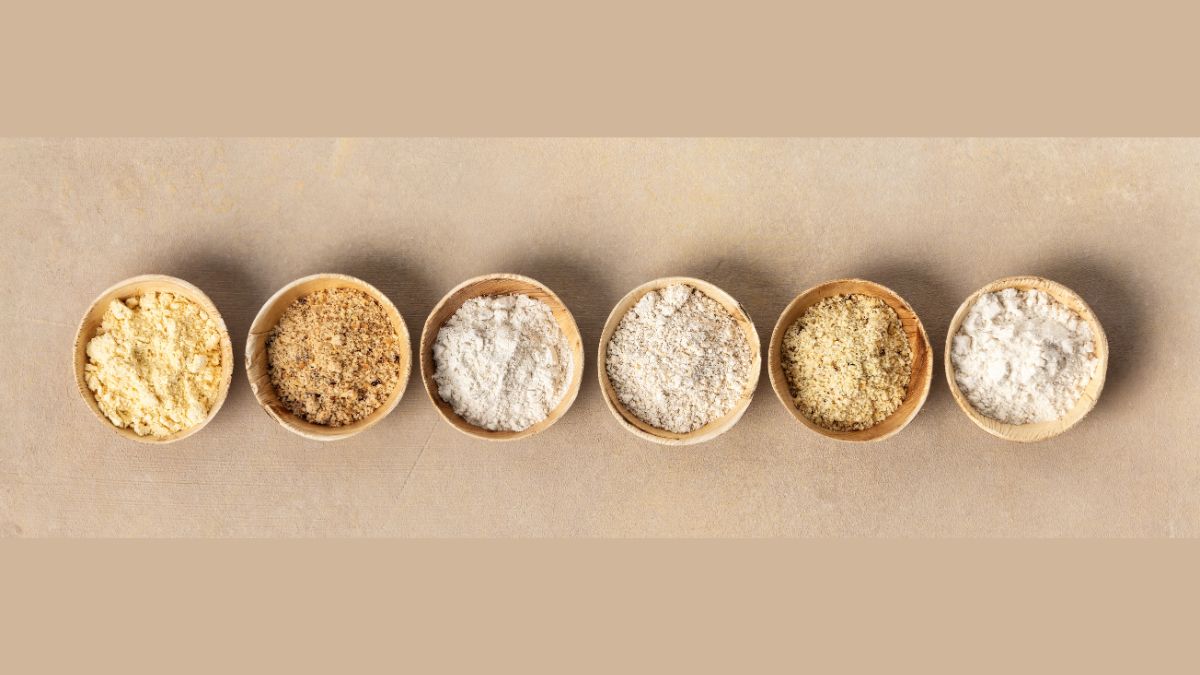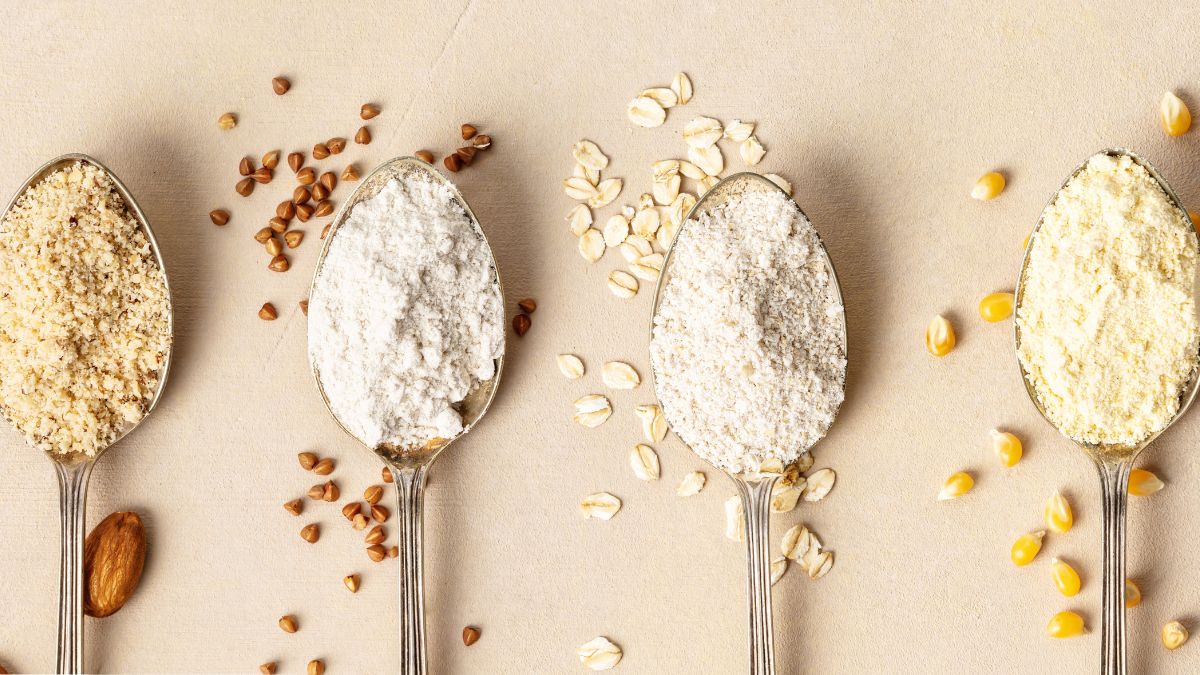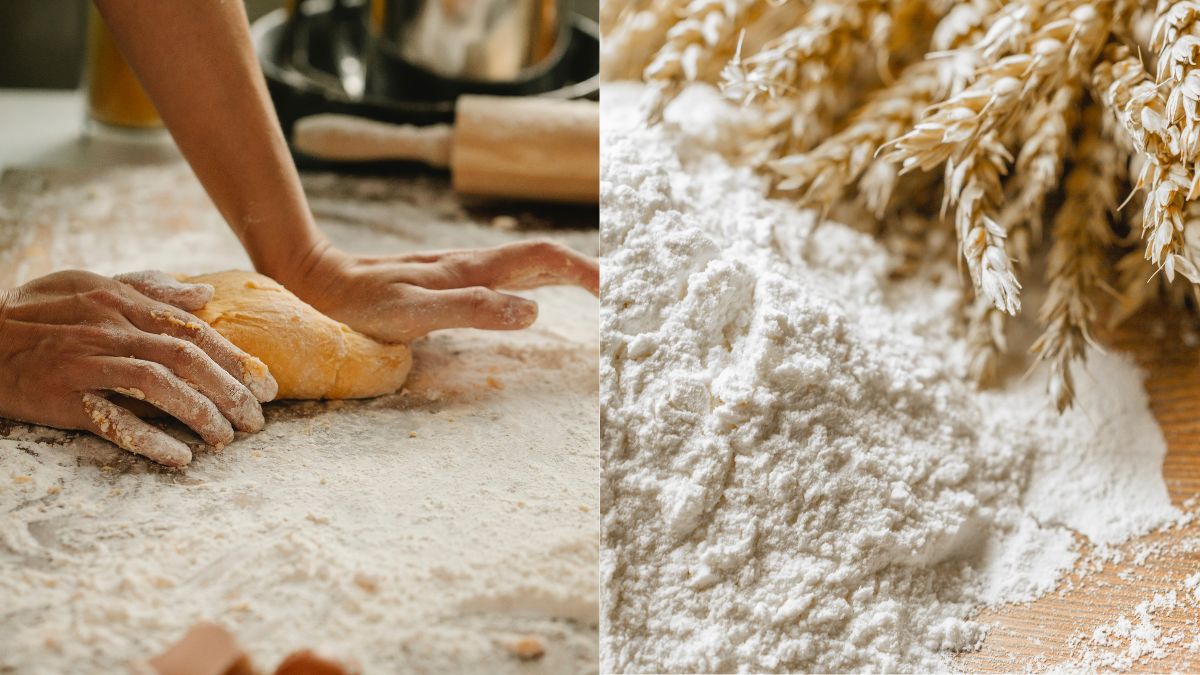- By Priyanka Munshi
- Wed, 20 Dec 2023 10:57 AM (IST)
- Source:JND
Also, using whole grain flours—such as oat or whole wheat flour—adds vital nutrients like fiber, vitamins, and minerals, which are sometimes lacking in processed flours. These nutrient-rich flours have been linked to increased energy levels, better digestion, and heart health.
Due to their gluten-free status, almond and coconut flours make great substitutes for people on a restricted diet. These flours offer unique tastes and textures, along with good fats, according to WebMD.

Flours Which You Must Add Into Your Daily Diet (Image Credit: Canva)
So here we have listed some of the most beneficial flours that you must add to your diet plan.
Quinoa Flour
Quinoa flour is a powder with a nutty flavor that is free of gluten. This flour is incredibly high in iron, fiber, protein, and unsaturated fat. Not only that, but quinoa flour also lowers inflammation, which in turn lowers the risk of disease and supports the health of the digestive system.
Also Read: Expert Lists Lifestyle Changes That Help To Manage Sudden Weight Gain
Almond Flour
Do you know that ground and peeled almonds are the source of almond flour? It is also a nutrient-dense food item that is high in fiber, healthy fats, and protein, which helps with feeling full and reduces blood sugar swings after meals.
Buckwheat Flour
A gluten-free plant with seeds that resemble grains, buckwheat flour is high in protein, fiber, and minerals like iron, manganese, and magnesium. It may encourage beneficial bacteria in the digestive system and has anti-inflammatory and anti-cancer qualities as well.

Flours Which You Must Add Into Your Daily Diet (Image Credit: Canva)
Coconut Flour
One of your finest options for a grain- and gluten-free diet is coconut flour. Although it has more calories per serving than other grain-based flours, it is a good source of protein, fat, fiber, antioxidants, iron, and potassium.
Also Read: 6 Benefits Of Drinking One Glass Of Carrot, Beetroot And Amla Juice For Overall Health
Oat Flour
Grinded rolled oats are used to make oat flour, a whole-grain flour free of gluten. This oat flour is a healthier substitute for ordinary flour because it is high in fiber, protein, iron, potassium, and calcium.
(Disclaimer: This article is for informational purposes only. It is not a substitute for professional advice, diagnosis or treatment.)

